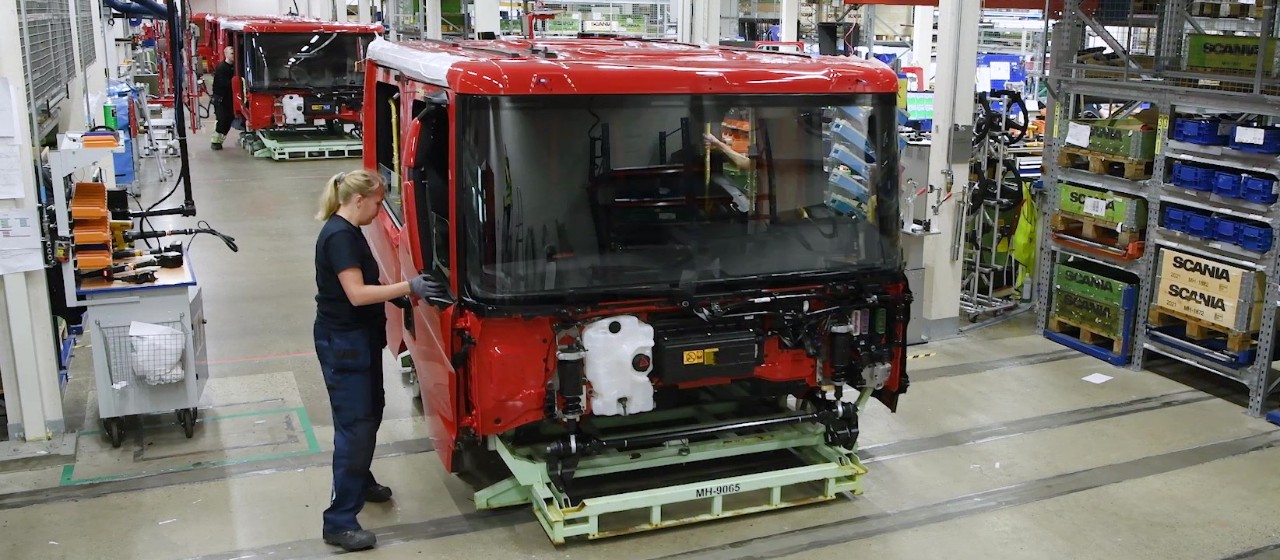
How Scania’s special cabs and vehicles are made
2 FEBRUARY 2022
In the small Swedish town of Laxå, with a population of 3,000 people, special products like the Scania Crew Cab and the L-series cab with City Door are being made.
Scania-Vabis has had a retailer in Laxå, central Sweden, since the 1950s. When the exceptionally clever mechanic Olow ‘Olle’ Pettersson was head-hunted by Scania in 1958, word soon spread about the special skills in the Laxå workshop. Over the ensuing five decades this extremely capable unit became more integrated into Scania’s production system, supplying customers with special vehicles. Since 2020, the company has been wholly owned by Scania.
“It is fantastic to enjoy full support from the Scania Group while at the same time being an agile and highly specialised unit,” says Managing Director, Björn Leksell.
There are two main process flows that pass through the unit in Laxå:
- A regular order flow, where special cab modules come to be set up, surface treated and assembled into customised crew cabs and low-entry cabs. These cabs are then delivered into the regular order slots on the Scania chassis assembly.
- A special order flow, where the trucks are almost completely assembled on the Södertälje line, and prepared for special adaptations that are later carried out at the Laxå unit. These are more unusual configurations, such as heavy haulage V8 tractors, with many axles put closely together on the frame, leaving little space for fuel or air pressure tanks. In this case the Laxå chassis shop will fit a special rack for this behind the cab. But there can be almost any kind of complex truck configuration.
The founder of the workshop, Olle Pettersson, was a pioneer in many technical areas. Among many impressive development projects in Laxå the low-entry cabs are well worth mentioning. They were introduced in the 1980s, mainly targeted at refuse collectors working in urban areas.
Today, Laxå is a modern production unit with several workshops and 160 employees, equipped with the latest tools and technology.
“Last year we handled some 1,500 special vehicles here,” says Leksell. “Of that figure 580 were crew cabs and 410 were L-series cabs, with some also equipped with the new City Door.”
made in laxå
A-order
- Crew cabs: CP28L, CP28N, CP31L, CP31N
- L-cabs (Low-entry)
- Extended cabs: CS/R23
S-order
- Chassis adaptations
- Cab adaptations
- Modifications (like axle configurations)
- V8 Racks for heavy haulage
- Customisations (such as Svempa’s)
Other
- Cab pantographs (for E-highways)
- Spare part manufacturing
- Special chassis and cab repair